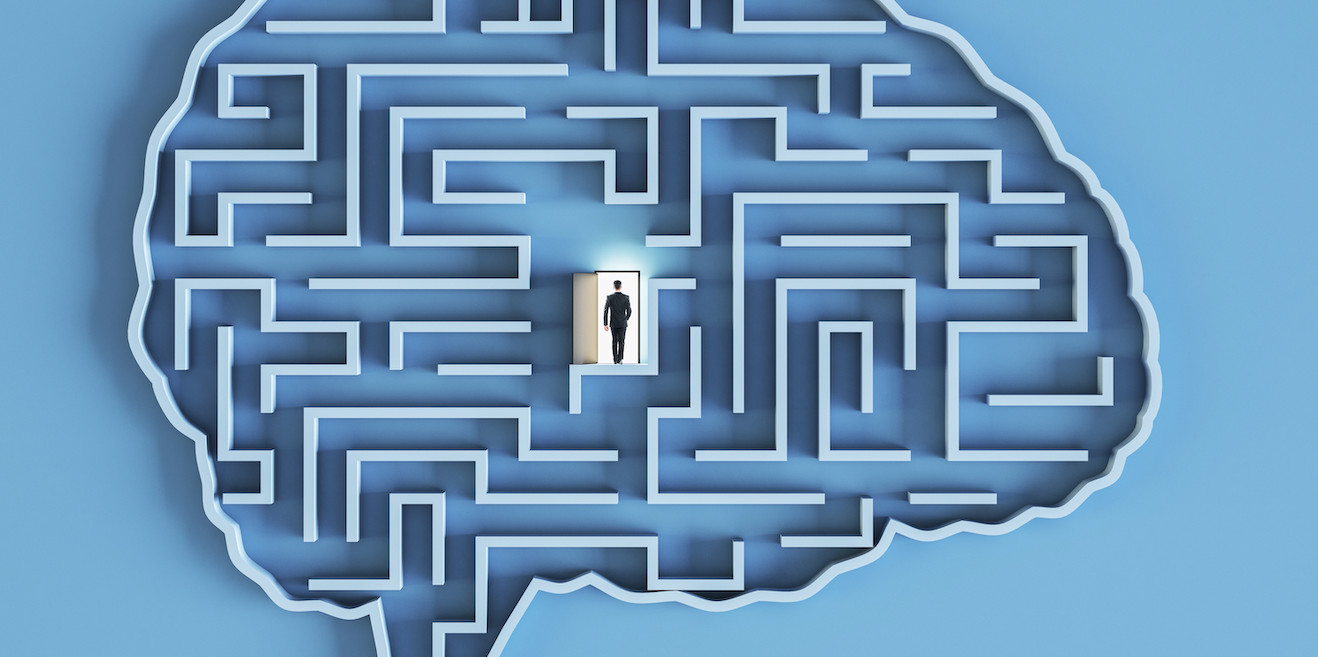
Health & Medicine
Do we think about anxiety and depression differently now?

When challenges arise we may feel confused, but there are five signs to help us understand when to seek mental health support
Published 30 August 2023
No matter how diligent we are in looking after our own wellbeing and supporting others, we are all emotionally vulnerable, in varying measures and at various times.
Given this susceptibility, in tandem with the genes we have inherited, the family in which we have grown up, and the society in which we live, we may experience mental ill-health.

When this happens, common sense dictates we try to detect something is amiss as promptly as we can, face the challenges that encroach on us, and take action to minimise disruption to ourselves, our families and relevant others.
But there are two factors that may jeopardise our ability to act.
First, when challenges intrude, our capacity to think clearly is often compromised by poor concentration, memory lapses and irrational thinking. Second, the brain – responsible for these processes – is probably not functioning optimally and impeding our efforts to launch a purposeful plan.

Health & Medicine
Do we think about anxiety and depression differently now?
We can compensate for these snags by focusing on the following five warning signs:
Excessive reaction to a life event: Although there are no set ways to deal with challenging life events, we can usually determine if we are reacting with exaggerated intensity.
For example, grieving for the loss of a loved one has a variety of characteristic features, including sadness, transient social withdrawal and tearfulness. When we experience these emotions at a level that exceeds the norms for our community, it may signify that our grieving is not as it should be.
Unduly prolonged reaction to a life event: Using grief as an example again, if our bereavement is unusually long-lasting or entrenched, again bearing in mind the typical customs of our cultural group, this may be a warning sign.

Coping deteriorates: a strong and versatile coping repertoire bolsters our resilience, but our coping methods may fail us.
We may resort to alcohol or drugs, withdraw socially, sleep excessively, take undue risks, binge eat, or engage in many other modes of self-harm. It is obvious when coping has gone off the rails, but subtle changes tend to be camouflaged. For instance, furtive reliance on alcohol to deal with a tense marriage may remain unnoticed until signs of self-neglect manifest.
Strange and unusual behaviour: In the face of stressful circumstances, which are not always obvious, we may act bizarrely and be incapable of providing a coherent account of our behaviour. Obvious examples include erroneous thoughts of being persecuted or self-starvation.

Health & Medicine
What actually works for anxiety and depression?
Impairment of a major mental function: one or more of what we call ‘higher mental abilities’ – concentration, judgement, memory, and ordered thinking – may fail us. Memory lapses in an ageing person may go beyond mere forgetfulness and reflect a more serious mental change.
With these warning signs in mind, let us outline the process to identify a psychological problem as early as possible. Firstly, we need to acknowledge that something is amiss and identify a course of action. However, it may not be at all clear what to do – the situation is often bewildering, even impervious to objective appraisal.
The British author Robert McCrum describes in his memoir My Year Off how, after suffering a major stroke, he found it difficult to think rationally about what he was undergoing:
Sometimes it is difficult for me to acknowledge the importance of what has happened. I come from a tight-lipped culture in which the standard response to misfortune is to assert that one is ‘fine’, or that one is ‘perfectly OK’.
It is, of course, a massive denial to claim that one is coping when plainly one is not. For me to admit that I was often scared and lonely these long winter months was as difficult as it was to admit that I could, sometimes, feel a profound anger towards the world that had done this to me.

Testing out our intuitions is an appropriate response in these puzzling circumstances. This is best done through sharing the experience of the worrisome change with trusted others, usually family members or close friends.
They may be able to help in unravelling the nature of our difficulties, and through such collaboration deal effectively with them. If the problem is beyond our skills, systematic aid is usually required by an advocacy group like Alcoholics Anonymous (AA) or a walk-in facility (for example, in Australia, Headspace).
Frustratingly, help-seeking can go wrong. We may feel so helpless that we are too flummoxed to consider our needs rationally.

Health & Medicine
Is psychiatry shrinking what we think of as normal?
Many will have had the experience of having to assist friends and acquaintances when they or their family members have lost their emotional anchorage and shown utter bewilderment about how to obtain help.
Unfortunately, charlatans, quacks, and gurus abound, many of them promising a quick fix, their fraud compounded in some cases by the setting of exorbitant fees.
In general, it is wise to approach a conventionally trained mental health professional. Your family doctor is well placed to provide initial help, especially if they are familiar, trusted figures who have known you over an extended period.
A variety of counsellors may be your first port of call. Some are easy to find – school counsellors or university counsellors (usually a psychologist) are good examples, in that they are readily accessible and specifically equipped to help you in these settings.

On occasion, and for diverse reasons, a good match between clinician and patient does not materialise. A legitimate question then arises: can you seek a replacement? Neither participant should feel trapped – human beings do not automatically mesh with one another.
With the help we have described most of us will recover. We will be relieved of our suffering, or at least feel much better.
But at this point, there is much more to be done than merely sitting back. The most vital extra step is attending to the general principles for good mental health including relaxation, distraction, family and friends and workplace issues.

Health & Medicine
Men’s self-reliance linked to risk of self-harm
Unfortunately, despite all the best efforts, people with a basic predisposition to mental ill-health may experience one or more recurrences. Indeed, once people have experienced a psychiatric disorder, the need to promote their own mental health becomes even more critical.
If you or anyone you know needs help or support, please contact Lifeline on 13 11 14.
This is an edited extract from Troubled Minds: understanding and treating mental illness by Sidney Bloch & Nick Haslam (Scribe). Chapters cover common mental health problems of adults and children and their treatment as well as how we have the potential to promote our own mental health and wellbeing.
Banner: Shutterstock